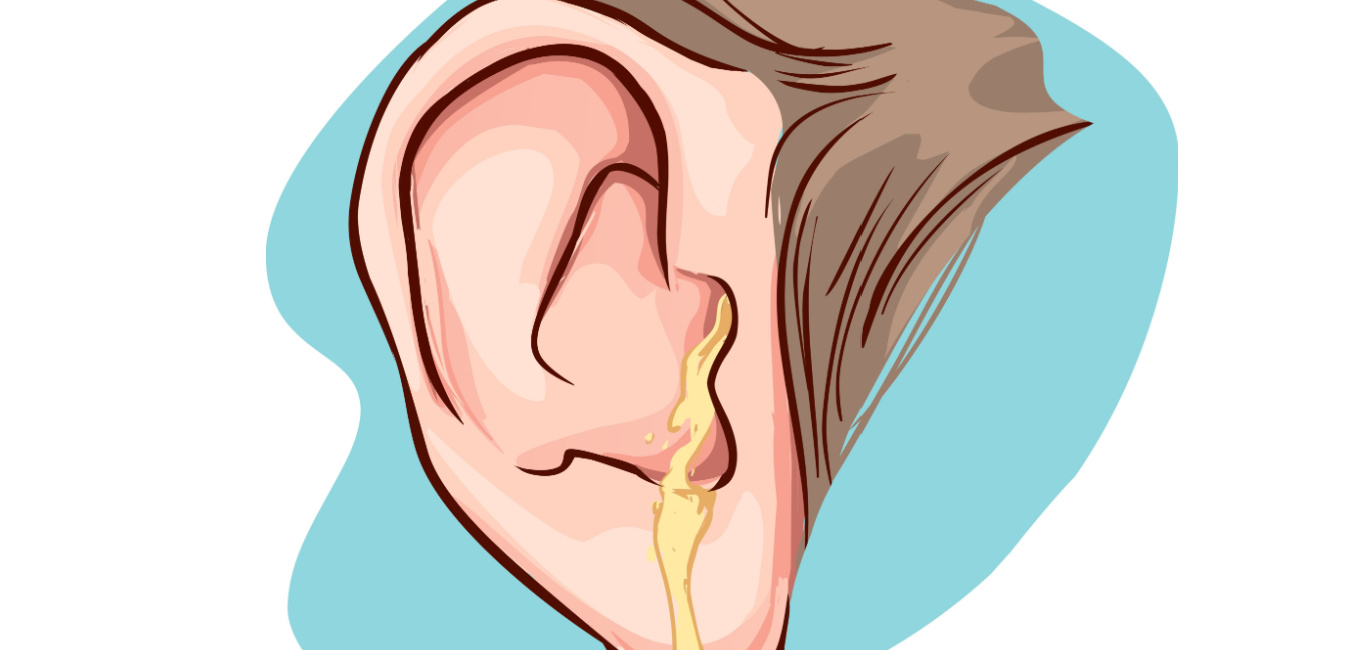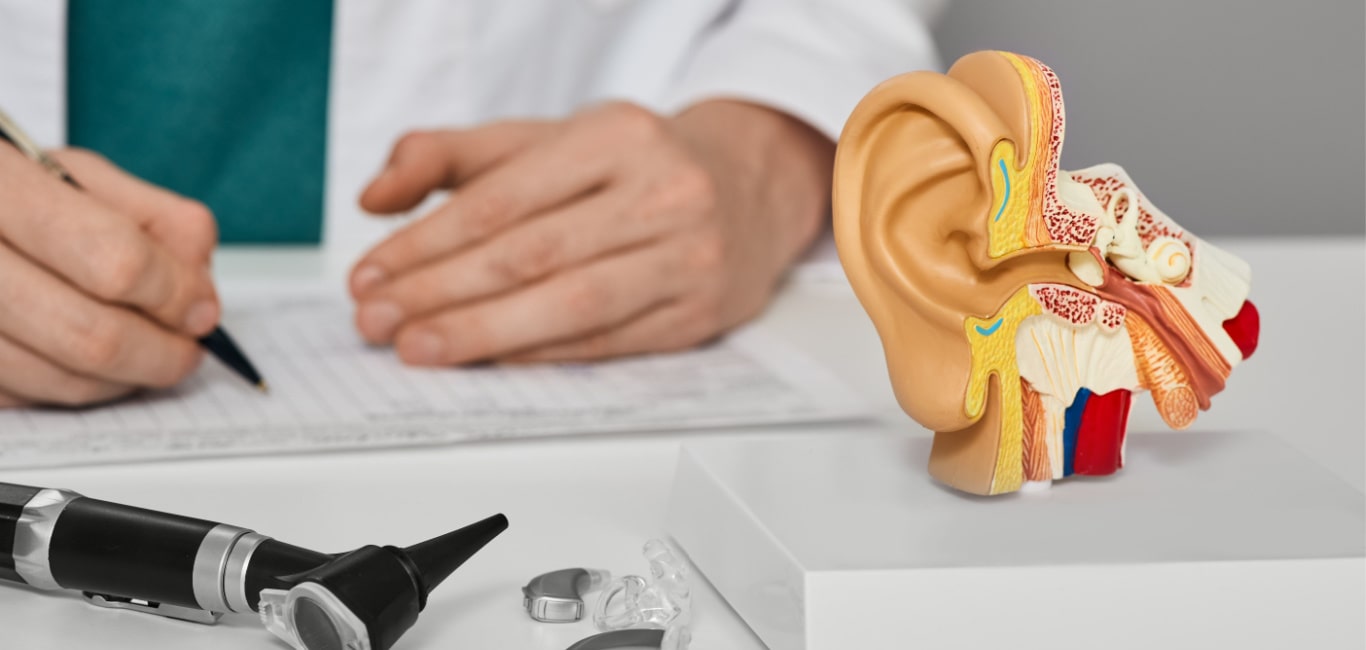
Otorrhea refers to any abnormal discharge from the ear. This condition, also known as runny ears, is characterised by various types of discharges each indicating different underlying causes.
Understanding the symptoms, causes, risk factors and complications associated with otorrhea is important for diagnosing and managing the condition.
Last summer, after a swimming session, Ananya Suresh, 28, a cloud analyst from Bengaluru, felt as though her ear was obstructed. As an avid swimmer, she ignored the water getting inside her ears, believing it would drain out on its own. However, when the discharge and ache in her left ear persisted for a week she decided to consult an ENT (ear, nose and throat) specialist.
The doctor told her she had otitis externa or swimmer’s ear – an infection or inflammation of the outer ear canal caused by exposure to water.
“I was experiencing intense ear pain, itching and a pus-like discharge from the left ear. The doctor checked my left ear and said there was significant swelling and redness of the external ear canal. The discharge which he referred to as otorrhea was one of the symptoms of ear infection,” Suresh says.
The first signs
Dr H K Susheen Dutt, senior consultant and ENT specialist at Fortis Hospital, Bengaluru, says otorrhea is often a symptom of an underlying issue such as an ear infection. It can occur in both external ear infections (otitis externa) and middle ear infections (otitis media).
“The presence of ear discharge, or otorrhea, is a key indicator that something is affecting the ear’s normal function,” he says.
There are other common symptoms associated with it, says Dr Apoorva Reddy, senior ENT specialist, Kamineni Hospitals, Hyderabad.
- Pain: Pain in the ear can accompany otorrhea, especially if there is an underlying infection or inflammation.
- Fever: Systemic symptoms such as fever may be present, indicating an infection.
- Reduced hearing: Fluid accumulation or other factors affecting the ear can impair hearing.
What causes otorrhea
Dr Dutt lists a few primary causes of otorrhea:
- Bacterial infections: Infections such as otitis externa, acute otitis media or other infections caused by bacteria can lead to otorrhea.
- Fungal infections: Though less common fungal infections of the ear can trigger otorrhea.
- Trauma: Injury to the ear, including perforation of the eardrum, can result in ear discharge.
- Foreign bodies: The presence of external objects in the ear can lead to irritation and otorrhea.
- Chronic conditions: Conditions such as cholesteatoma, characterised by abnormal skin growth in the middle ear, can cause persistent otorrhea.
Know more about the causes of otorrhea.
Types of otorrhea
Otorrhea is characterised by different types of ear discharges, including thin, watery or clear discharges, thick secretions, mucous discharges, purulent (pus-containing) discharges and those with some blood. Variations in discharge types often indicate different underlying conditions of the ear.
Happiest Health lists out different types of otorrhea.
- Purulent otorrhea: It involves the discharge of pus, which is typically yellow or greenish in colour.
- Serous otorrhea: It refers to the discharge of a clear, watery fluid that contains serum, a protein-rich liquid found in blood.
- Bloody otorrhea: It involves the presence of blood in the ear discharge.
- Mucoid otorrhea: It characterises the ear with the presence of thick and viscous mucus-like discharge.
- Clear otorrhea: It involves the discharge of a thin and watery fluid that is transparent.
Diagnosis
Experts follow a systematic approach based on clinical observations and tests to detect otorrhea. Here are a few ways, according to Dr Dutt.
- Using an endoscope, experts visually assess the presence of fluid in the ear canal. Imaging studies, such as CT scans or MRIs can identify the underlying cause.
- When it is the first occurrence, experts may initiate treatment without detailed testing. An expert cleans the ear and prescribes broad-spectrum medicines.
- For recurrent or non-responsive cases, further evaluation is undertaken. This may include a swab test of the ear discharge to identify the specific bacteria or fungi causing the infection.
- After establishing the type of microorganisms causing it, we conduct culture and sensitivity testing to identify the most effective antibiotics or antifungals based on the specific pathogens and their susceptibility.
Treatment
Dr Reddy details these common treatment approaches for otorrhea .
- Suction clearance: An expert removes accumulated fluids by performing suction clearance of ear discharge. An expert may prescribe topical antibacterial or antifungal ear drops.
- Acetic acid ear drops: Acetic acid ear drops provide an antimicrobial action to eliminate infective components.
- Ear wax removal: The ENT specialist may clear the ear passage and remove ear wax which may be hindering the natural drainage of secretions.
- Combination therapy: In cases of severe infection, doctors may prescribe a combination of oral antibiotics along with topical treatments.
Ananya Suresh says her doctor gave her antibiotic ear drops to treat the infection and asked her not to swim until the infection subsided. “I also had a habit of using cotton swabs but I have stopped using them now after my doctor explained that it can be dangerous to my ears.”
Risk factors
Risk factors for developing otorrhea include a history of ear infections, frequent exposure to water (such as swimming or bathing), use of certain devices such as hearing aids or earphones, besides a compromised immune function.
“The anatomy and structure of the ear play a major role in the development of otorrhea,” says Dr Dutt. He further says that the ear canal, middle ear and the eustachian tube can be susceptible to infections, and any disruption in their normal function can lead to an accumulation of fluids and subsequent discharge.
While otorrhea can affect individuals of any age, children are in particular prone to ear infections. This is because their immune systems are not fully developed, small, and their eustachian tubes are horizontally oriented, according to Dr Dutt.
When otorrhea is untreated
Untreated or chronic otorrhea can lead to several complications such a these, according to Dr Reddy.
- Hearing loss: Persistent fluid or infection in the ear can cause gradual hearing loss.
- Spread of infection: Untreated infections may extend to surrounding structures, causing mastoiditis (inflammation or infection of the prominent bone called mastoid behind the ear); and potential formation of abscess.
- Damage to ear bones: Chronic otorrhea can damage the delicate ear bones (ossicles), contributing to hearing impairment.
- Cholesteatoma formation: Prolonged otorrhea may lead to the development of a cholesteatoma, causing erosion of ear structures.
- Facial nerve complications: Extensive infection may involve the facial nerve, leading to facial weakness or paralysis.
- Persistent tinnitus: It may lead to long-term perception of ringing in the ears (tinnitus).
Preventive measures
A few measures taken in time can prevent or reduce the risk of otorrhea.
- Regular cleaning: Clean the external ear gently with a soft washcloth, avoiding insertion into the ear canal or excessive cleaning. This is to ensure that the natural outward movement of earwax is not disrupted.
- Avoid Q-tips: Avoid using cotton swabs or Q-tips, as they can push wax deeper into the ear canal and block the passage.
- External objects: Inserting foreign objects into the ears for removing wax or scratching can cause injury and infections.
- Early recognition: Be aware of the signs of ear infections, including pain, discharge or changes in hearing. Promptly seek medical attention if symptoms arise.
Earbuds and swabs
Dr Dutt emphasises avoiding the use of cotton swabs and earbuds. “If your profession needs regular use of earbuds or if you use it a lot, opt for a headphone instead,” he says. Earbuds can increase the risk of infections and also can lead to hearing loss.
Understanding the various aspects of otorrhea is important for preventing and managing complications effectively. Those who have symptoms of otorrhea should contact a doctor or an ENT specialist as soon as possible to ensure its diagnosis and treatment.

















